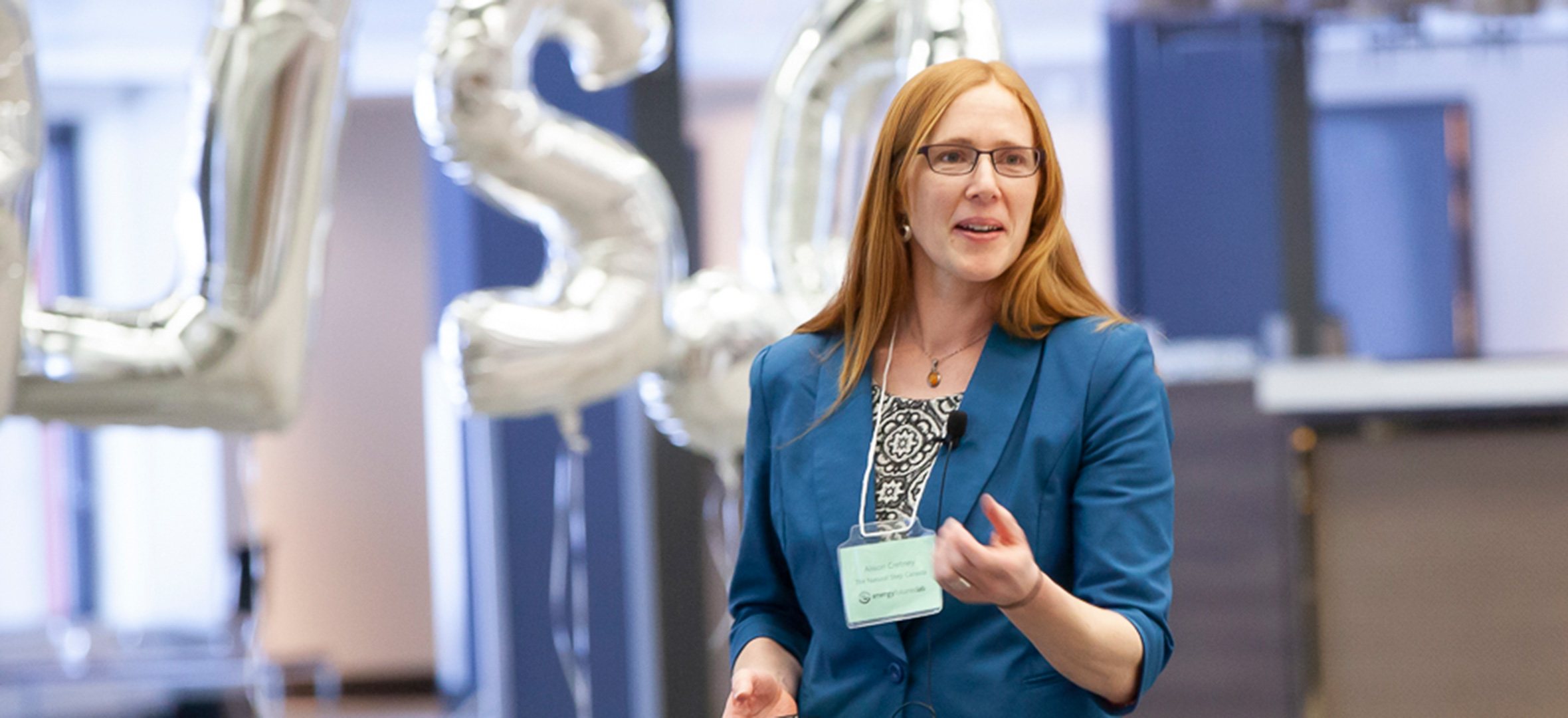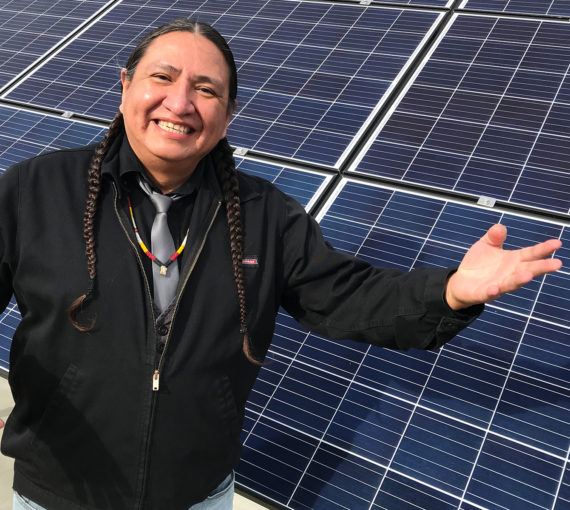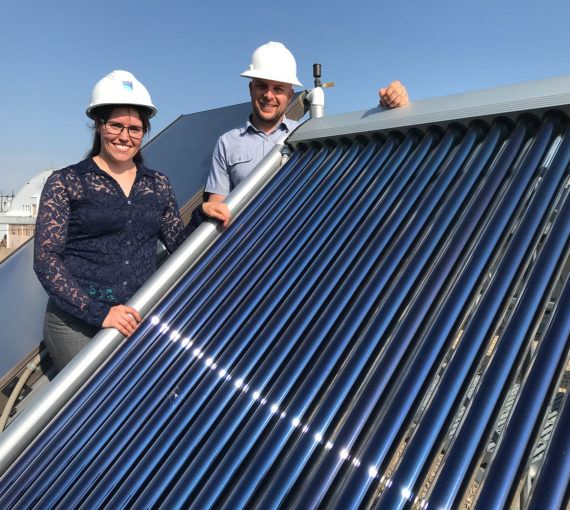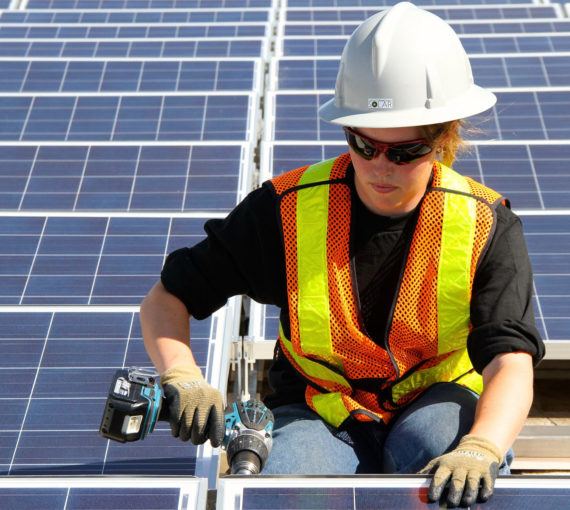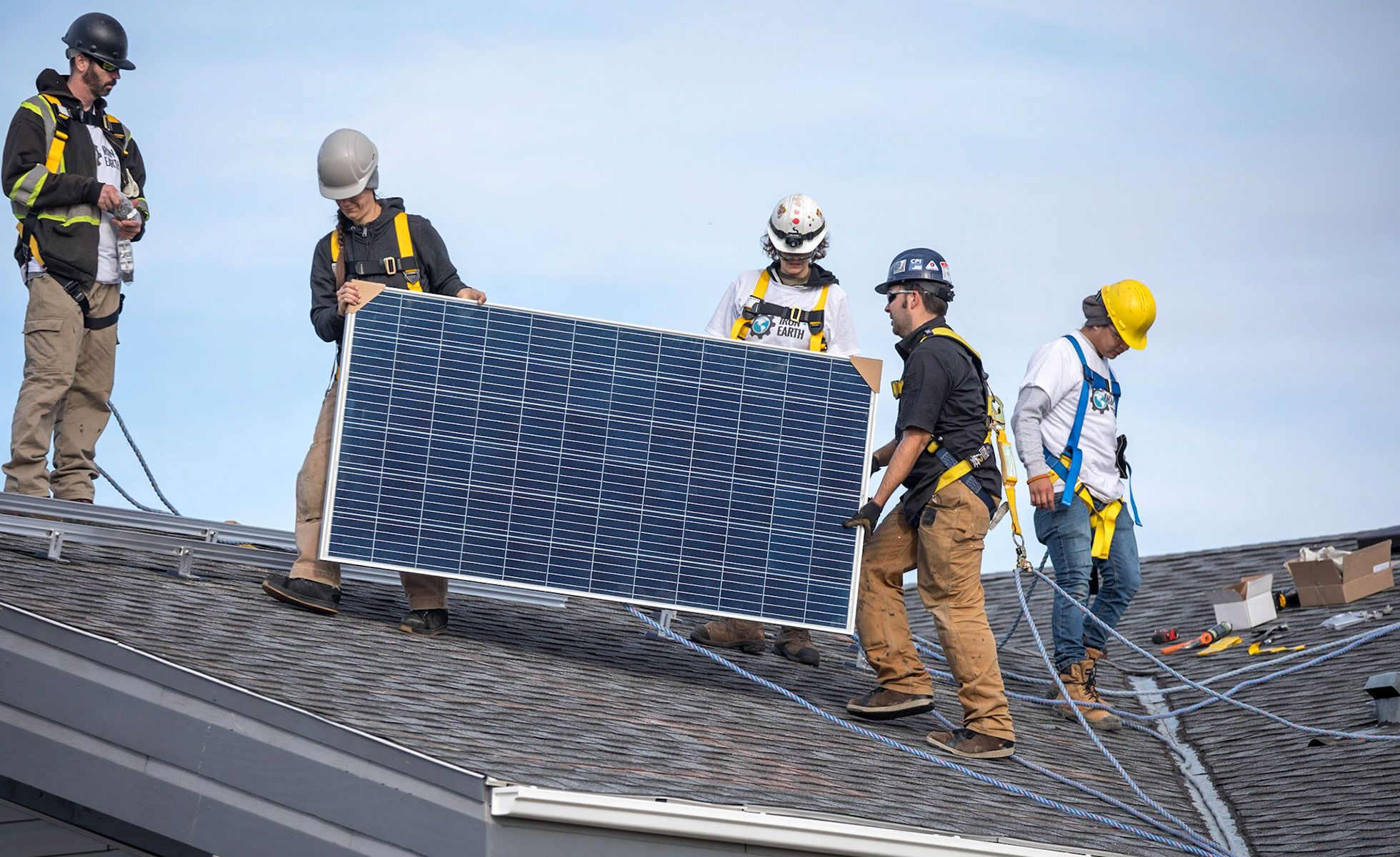
Members of Louis Bull Tribe and Iron & Earth collaborate on a solar installation project. (Photo: Green Energy Futures)
What do oil executives and climate activists have in common? Not much, if you listen to popular media narratives pitting environmental protection against economic growth. But at the Energy Futures Lab, diverse innovators and stakeholders in Alberta’s energy sector are finding plenty of room for collaboration.
The Lab is a remote network of 60 fellows from Alberta, including innovators in renewable energy technologies, First Nations community leaders, academics, executives from traditional oil and gas companies and artists. Managing director Alison Cretney and her executive team select participants for the fellowships and facilitate collaboration between them through remote networking and in-person workshops.
Since its inception in 2015, Energy Futures Lab has been on a mission to leverage Alberta’s energy strengths to help accelerate the transition to a “fit for the future” energy system. By connecting people from diverse backgrounds, the Lab is fast-tracking the development of low-emissions and no-emissions energy sources and technologies that meet the energy needs of Albertans — all while supporting community partnerships that contribute to reconciliation with Indigenous Peoples. This, they believe, will help find solutions to climate change while ensuring Alberta’s economic stability and contributing to Albertans’ quality of life.
The Lab’s fellowship program aims to include as many perspectives as possible in designing solutions. The fellows come together a few times each year to find new ways to collaborate on projects.
“We talk about it as co-creation,” Cretney explains. “We find areas of common ground across all that diversity, where there are enough shared goals and alignment that people can move forward together.”
The Lab hosts workshops and accelerator events in Alberta towns and cities through the Energy Futures Roadshow, which enables people to learn about the province’s energy challenges and help create solutions.
At Energy Futures Lab workshops, even the unlikeliest allies can find areas of collaboration. For example, a frosty relationship between a conservative energy executive and a hard-core environmental activist thawed during a conversation about the potential of geothermal energy. The two are now working together to coordinate a geothermal project. Managing relationships between people with different priorities can be challenging, but Cretney believes it’s what makes the work worthwhile.
The idea that you can either have a thriving economy or climate action is what we consider a false choice. Here we have an opportunity to align and move forward.
Alison Cretney, Energy Futures Lab
One noteworthy partnership born out of the Lab was that of Iron & Earth and Louis Bull Tribe. Iron & Earth is an organization of energy sector tradespeople looking to re-skill and transfer capabilities they developed in oil and gas and apply them in renewable energy. Shortly after its inception in 2016, founder Lliam Hildebrand was invited to be a fellow at the Lab, where he met a community leader for Louis Bull Tribe in Maskwacis, Alberta. They began to collaborate on a project that involved installing solar panels on a community daycare while training both oilsands workers and Louis Bull Tribe members in solar installation.
Cretney and Hildebrand believe that renewable energy and sustainability are important for the future of Alberta and that collaboration is the best way to accelerate their adoption. As Indigenous Peoples are vital to these collaborations, the Lab prioritizes partnerships that make respectful, equitable relationships with Indigenous communities central to the energy transition.
According to Hildebrand, “an enormous opportunity exists for reconciliation to be an integrated part of renewable energy development in Canada.” Iron & Earth has emphasized reconciliation from its inception; its work with the Louis Bull Tribe offered an excellent opportunity to show its ideals in action.
Reconciliation should be approached with a spirit of openness and respect, which is exactly what the Lab fosters in all of its partnerships. Taking a step back from the economy-versus-environment narrative that dominates the headlines reveals a productive space where pragmatism and collaboration lead to real solutions.
“The idea that you can either have a thriving economy or climate action is what we consider a false choice,” Cretney says. “Here we have an opportunity to align and move forward.”
The Lab continues to expand its list of successes and diverse fellows. Recently it hosted a conference on the potential for artificial intelligence to contribute to energy solutions and it is constantly supporting innovative new partnerships.
Renewable energy is empowering communities across the country. Charged Up is the story of you — of all of us — on a mission for a cleaner, healthier charged-up Canada.
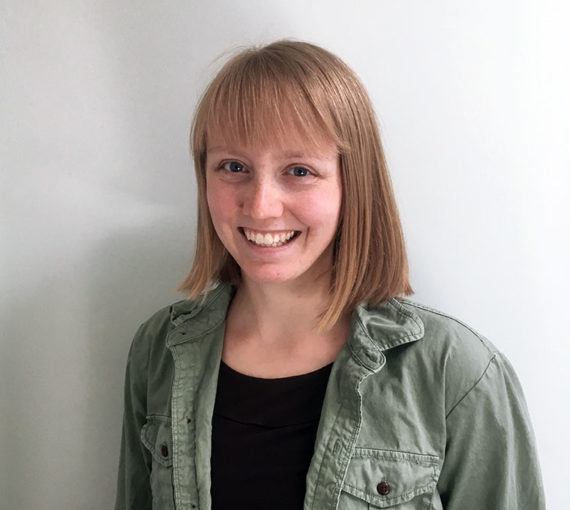
Lila Asher
Lila Asher is a writer, researcher, activist, and figure skater. She is a recent graduate of the University of Toronto with a BA in Equity Studies and Environmental Biology.

